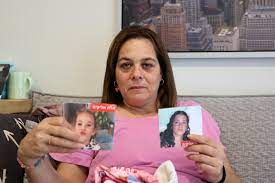
GAZA STRIP, Palestinian Territories, Nov 24, 2023 (BSS/AFP) - After 48 days
of gunfire and bombardment that claimed thousands of lives, a four-day truce
in the Israel-Hamas war began on Friday with hostages set to be released in
exchange for Palestinian prisoners.
The truce, from 7:00 am (0500 GMT), triggered a mass movement of thousands of
Gazans who had sought refuge in schools and hospitals from relentless Israeli
bombardment begun after unprecedented attacks on October 7 by Hamas
militants.
"I'm going home," Omar Jibrin, 16, told AFP after he emerged from a hospital
in the south of the Gaza Strip where he and eight family members had sought
refuge.
In Khan Yunis, in southern Gaza where many Palestinians fled, a cacophony of
car horns and ambulance sirens has replaced the sound of war.
For Khaled al-Halabi, the truce is "a chance to breathe" after nearly seven
weeks of war that began when Hamas broke through Gaza's militarised border to
kill, according to Israeli officials, about 1,200 people and seize around 240
Israeli and foreign hostages.
Israel's retaliatory air, artillery and naval strikes alongside a ground
offensive have killed about 15,000 people, the Hamas government in Gaza said.
"I hope the truce will take effect throughout the Gaza Strip so I can see my
destroyed house and what's left of it," said Halabi, who took refuge in Rafah
but is from Gaza City in the north, much of which has been reduced to rubble.
- Aid enters -
Gazans like Halabi have struggled to survive with shortages of food, water
and fuel. Trucks carrying more aid, including fuel, began moving into Gaza
from the Rafah crossing with Egypt shortly after the truce began.
The agreement came after weeks of talks involving Israel, Palestinian
militant groups, Qatar, Egypt and the United States.
As part of the deal, 13 women and children held hostage in Gaza are due to be
freed at 4:00 pm, followed by a number of Palestinian prisoners from Israeli
jails, according to Qatari mediators.
Over the four days, at least 50 hostages are expected to be freed, leaving an
estimated 190 in the hands of Palestinian militants.
In exchange, 150 Palestinians prisoners are expected to be released.
According to the United Nations, 1.7 million of Gaza's 2.4 million people are
estimated to have been displaced by the fighting.
Now, thousands of them are trying to get home.
In Khan Yunis, they loaded belongings onto carts, strapped them to car roofs,
or slung bags over their shoulders, crowding streets to return to their homes
in the city's east after leaving their war shelters.
Israeli warplanes over southern Gaza dropped leaflets warning people not to
head back to the north.
"The war is not over yet," the leaflets read. "Returning to the north is
forbidden and very dangerous!!!"
Around 15 minutes after the truce began, sirens warning of incoming rockets
sounded in several communities along Israel's border with Gaza, the Israeli
military said, without providing further details.
In the morning, a few apparent gunshots could be heard and dark plumes of
smoke rose periodically over northern Gaza, an AFPTV livecam showed, but the
truce appeared to be holding.
Further north, on the Lebanon-Israel border, calm also returned after regular
deadly exchanges of fire, primarily between the Israeli army and Hezbollah.
The Lebanese movement, like Hamas, is backed by Iran.
Qatari officials said the "first batch" of 13 hostages released would be
women and children from the same families.
Speaking to AFP on condition of anonymity, a Hamas official said the captives
would be freed "by 4:00 pm at the latest".
- Carefully scripted -
Israeli soldiers are being carefully prepared to receive potentially deeply
traumatised women and child hostages. Even the first words the soldier-
escorts will say have been carefully scripted. They have also been encouraged
to carry the child's favourite food.
An Egyptian security source told AFP that Israeli security officials,
International Red Cross-Red Crescent staff and an Egyptian team would deploy
to Rafah, on the Egypt-Gaza border, to receive the hostages, who would then
be flown to Israel.
AFP has confirmed the identities of 210 of the roughly 240 captives.
At least 35 of those taken hostage were children, with 18 of them aged 10 or
under at the time of the Hamas attack.
Four female hostages have already been released by Hamas and Israeli forces
rescued one female soldier. Two other captives, including a woman soldier,
were found dead by Israeli troops in Gaza.
The office of Israeli Prime Minister Benjamin Netanyahu said it had received
"a first list of names" of those due to be released and been in contact with
the families. It did not specify who was on the list.
Maayan Zin, whose eight- and 15-year-old daughters Ela and Dafna are also
among the hostages, posted on X, formerly Twitter, that she had been informed
their names were not included.
"This is incredibly difficult for me; I long for their return," she wrote.
Asked if he expected kidnapped American toddler Abigail Mor Idan to be in the
first release, US President Joe Biden said: "I'm keeping my fingers crossed."
Palestinian prisoners held in Israeli jails will also be freed on Friday,
Qatari foreign ministry spokesperson Majed Al Ansari said, adding a list of
names had been approved.
The agreement entailed a "complete ceasefire with no attacks from the air or
the ground" and the skies clear of drones to "allow for the hostage release
to happen in a safe environment", Ansari said.
Palestinian prisoners will be released from three jails in Israel and the
Israeli-occupied West Bank, then taken to the Ofer military camp on buses, an
Israeli official told AFP on condition of anonymity.
Governments around the world welcomed the agreement, with some expressing
hope it will lead to a lasting end to the war.
Israeli officials, however, say the truce will be only temporary.